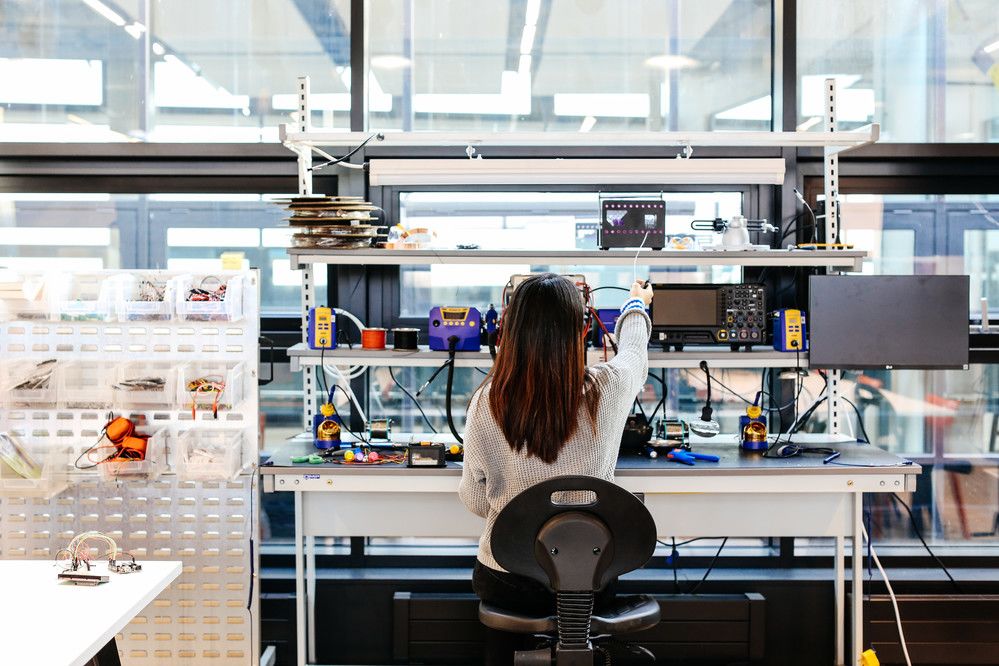Putting the UK creative industries on track to lead in AI

- Written byMick Grierson
- Published date 06 November 2020

With the ongoing threat to the UK’s world-leading creative industries due to Covid-19, we’re working with organisations across the tech and creative sectors to make a policy argument to the government to invest in AI and our creative industries as a means to help support the sector’s long-term growth.
Ahead of the government's comprehensive Spending Review later this month, the Creative Industries Policy and Evidence Centre (PEC), which is led by Nesta, has evidenced how a 5-year UK Centre for AI and the Creative Industries would help the UK recover and rebuild.
UAL leaders including Vice-Chancellor Sir Nigel Carrington, our former Chair Sir John Sorrell CBE, UAL Governor Ben Terrett RDI and myself on behalf of UAL Creative Computing Institute have signed an open letter of support for this proposal, sent to the Chancellor, Rishi Sunak MP.
The case for AI and the creative industries
The UK has world-leading creative industries: from film to fashion, architecture, computer games, design, art, advertising and more.
Pre-pandemic, the sector was a UK success story: growing at more than twice the rate of the economy as a whole and employing more than 2 million people.
We are a global leader in AI research, with the third highest level of AI research in the world: behind only the US and China.
AI is one of the Grand Challenge areas of the government's Industrial Strategy, identified to “put the UK at the forefront of the industries of the future". As it looks to enable economic recovery via the Spending Review, our government has an opportunity to capitalise on the UK's strengths in both AI and creative enterprise by committing to supporting the application of AI across the creative industries.
Transforming industry, entertainment and business
AI is being successfully integrated across the creative industries where it is expanding what technology can creatively realise. Skillsets combining creativity, AI and other technologies will be crucial in building our post-Covid world.
The next generation of cultural content across film, fashion, design, games, art, architecture, and music that we all enjoy will increasingly use AI as a central part of production and consumer processes. Music and film streaming websites increasingly use machine learning in their recommendations and within animation companies, AI is starting to automate the rendering of visual effects.
AI in fashion: sustainability, innovation and Covid-19
AI is helping to reengineer the fashion industry, putting data to use to more precisely predict customer needs and cut down on production waste. It's providing new ways for customers to experience products and services, through AI-enabled apps and retail experiences.
As well as helping tackle challenges around sustainability and overproduction, AI is responding to the need for innovative digital ways for fashion brands to do business fast-tracked by Covid-19. The pandemic has brought major disruption to the traditional business model as a result of restrictions on travel and catwalk shows; requiring a reimagining of the multiple annual fashion weeks that usually help to power the global fashion industry.
Matthew Drinkwater, Head of Fashion Innovation Agency, London College of Fashion, UAL recently explained the ways that creative AI, machine learning and immersive experiences are helping to push the boundaries of fashion, in articles in Metro and Forbes.
It has long been evident that fashion weeks have needed to evolve to provide a much more varied and accessible experience. One fact is undeniable, the increased blurring of our physical and digital lives is going to lead to fashion shows that are markedly different from the traditional runway of the past.” - Matthew Drinkwater
AI comes to millions of Adobe users
The worldwide community of Adobe Creative Cloud users including designers, artists, content creators, photographers, editors and communications and media producers now have AI in their hands with the release of Adobe's AI and machine learning-based plugins for Photoshop, called Neural Filters.
Neural Filters is a major breakthrough in AI-powered creativity and the beginning of a complete reimagination of filters and image manipulation using Photoshop. This technology is designed to revolutionise photography-editing workflows and give users the tools to edit and manipulate photographs and particularly portrait shots, in ways that weren't previously possible.
Why do we need a Centre for AI and the Creative Industries?
As other countries rapidly increase their investment in AI, without the necessary strategic support, we risk an opportunity being missed and the UK’s creative industries getting left behind in what is to be a key future technology. A dedicated centre would help us bridge the gap between academic research and practical application enabling us to lead the world in this emerging frontier.
Its remit would include developing training and skills in AI for the creative industries; acting as a gateway for creative businesses wanting to develop AI tools; exposing researchers to the technical issues of applying AI in creative settings and finally, supporting commercial development for AI creative start-ups.
Professor Mick Grierson, Research Leader, UAL Creative Computing Institute
Main image: UAL Creative Computing Institute MSc Creative Computing student Anna Tsuda in the studio. Photo by Alys Tomlinson
London College of Fashion, UAL x Microsoft: The Future of Fashion: 2019 student project with Microsoft and the Fashion Innovation Agency. From zero-waste patterns made with AI to collaborative Mixed Reality design, London College of Fashion students are harnessing innovation to disrupt the industry. Learn more at microsoft.com/inculture.